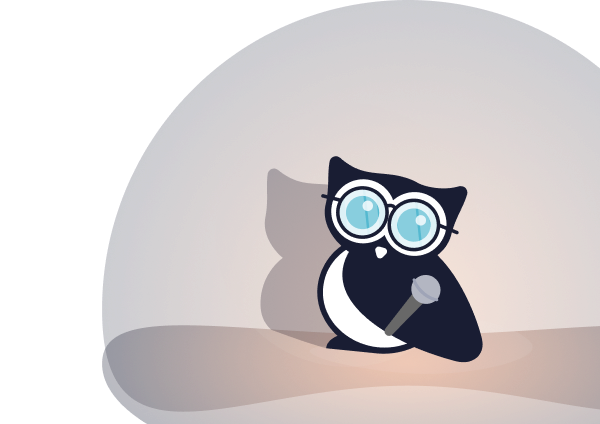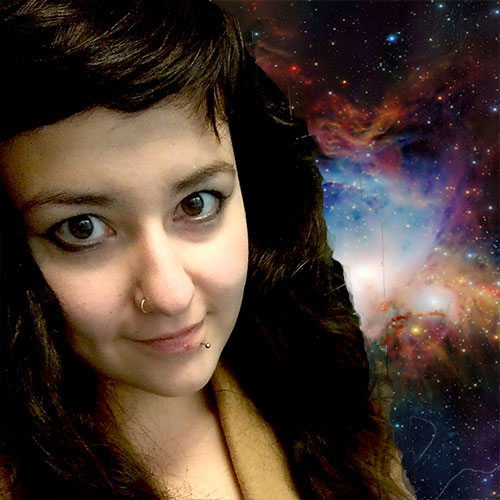
KnowledgeOwl company trip to Write the Docs Prague 2018
By Catherine Heath on Company culture from September 16, 2018
Write the Docs Prague conference 2018 was the focal point of our latest KnowledgeOwl company trip. This was the first time the whole team has been together in real life.
Write the Docs is a global conference for documentarians, which is a inclusive term for “someone who cares about documentation regardless of their job title.” A few individual members of our team have been to at least one of the conferences before, and some of us run Write the Docs meetups in our respective locations around the world.
We met in London from all over the world – England, Estonia and the United States. The plan was to catch several trains across Europe and take in the sights along the way. In a single day, we travelled from London to Prague by train.

Travel across Europe
First, we took the Eurostar to Paris after staying the night in London King’s Cross.
In Paris, we hurried to catch a boat tour. The tour took in such iconic sights as the Eiffel Tower and Notre Dame. After having our fill of baguettes from a typical boulangerie, we then caught a train to Basel where we quickly changed to a train to Zurich.
In Zurich, some of us sampled fondue and walked around the beautiful old city, while others relaxed by the river Limmet.
We then boarded the sleeper train which ran from Zurich to Prague. This was my personal highlight of the day’s travel. Our tiny bunk beds, rocking carriage and cross-country travel added to an atmosphere just like the Wes Anderson film The Darjeeling Limited.

Image caption: The Darjeeling Limited
On the sleeper train, we crossed through Liechtenstein, Austria, Germany, and then on to the Czech Republic as the train grew shorter and shorter at each stop. We woke up in Prague train station, and walked the fifteen minutes through the magnificent city to our hotel, The Golden Crown. The hotel was in a central location right next to the popular "Kafka head" statue.

Image caption: The Head of Franz Kafka by David Cerny
We then allowed ourselves to have a couple of rest days (while dealing with incoming support tickets, naturally) – before launching into conference madness.
Write the Docs conference
Write the Docs is a conference for people who care about documentation – specifically software documentation. It’s a chance to learn, take part in open source projects, and meet other documentarians.
Some of us had only been to Write the Docs Portland before, while others like myself had been to both (see my previous write ups on Prague and Portland).
This dual experience gives me a unique perspective on the conference in terms of comparing Prague and Portland – although there are new Write the Docs conferences in Cincinnati and Australia that I have never been to.
The conference is growing every year and this was the first sold-out Prague conference. The Prague conference is a lot smaller than Portland but has huge potential for growth. There currently seems to be a real need for this type of conference in Europe and I could almost see there being more than one Europe conference in the future.
The idea of Write the Docs is for cross-pollination and not for the conference to be exclusively for technical writers. The founders of the conference are developers themselves and that shows up in the nature of the talks, as well as the Writing Day “sprints”. They want everyone to learn the value of good documentation.
Inclusivity at the conference
Write the Docs conference is a great conference for introverts. From the extra signage, to the Quiet Room, to the badge decorating, they do a wonderful job making people comfortable and to encourage them to come out of their shells.
They’re continuously making efforts to be more inclusive by adding live captioning for the talks, allowing dogs in Portland, and live streaming the event for people who cannot make it in person.

Image caption: Global RT captioning tweet
There is a well-publicised mocktail menu at the conference social for people who don’t want to drink alcohol, and regular snack breaks. Despite the strong meat culture in Prague, they make efforts to accommodate vegans, vegetarians and other dietary restrictions.

Image caption: Tweet about mocktail menu from Kelly O'Brien
The speakers
I enjoyed the line-up of speakers which typically focused on how to improve your documentation.
There is a slant towards documentation processes including topics like tearing down your docs, tackling technical debt and measuring impact.
Some of the most popular talks seemed to be accessibility in your documentation (A11y-Friendly Documentation by Carolyn Stransky), as well as making documentation videos (So you want to make videos? by Sarah Ley-Hamilton).

Image caption: "So you want to make a video" talk by Sarah Ley-Hamilton
There were a couple of first time speakers, which is fantastic because it makes it easier to imagine yourself up there one day.
Lightning talks were also a highlight of the conference, including a talk on mushroom hunting, a talk from the live captioning team, and even an acapella singing group (which delighted many).

Image caption: Acapella group singing tweet by Jessica Ulyate
We’ll be publishing in-depth blog posts soon summarising some of our favourite talks. In the meantime you can check out the talk videos on YouTube.
How to get the most out of the conference
One of the best ways to enjoy the conference is to follow along on twitter beforehand and during the conference. Many of the speakers tweet using the hashtag #writethedocs and many other people also share useful information using this hashtag.
In terms of socializing IRL (In Real Life), you should follow the Pac Man rule. This means when standing in a group you should leave space for someone new to join (standing like Pac Man).
 Image caption: Pac Man
Image caption: Pac Man
You are now also encouraged to meet as many new people per day at the conference as the number of years you have been attending (a rule called Community++). This is to stop older groups becoming entrenched and help make sure new people feel welcome. I had to speak to at least two new people a day because I have been attending for two years.
My personal aim is always to make at least one new friend per day anyway. This time, I managed to make friends with one of the speakers, and I also met up with someone I had previously only contacted through the Write the Docs Slack channel.
The Write the Docs Slack channel is now at 4,500 members and growing fast. There also is a Write the Docs newsletter summarizing some of the key discussions that take place on Slack, which usually focus on topics to do with the documentation field.
The meetup unconference
Using the Slack channel for meetup organizers, I also helped bring together an unconference about meetups. This made me feel more involved in the conference and I left with some interesting ideas for improving my future Write the Docs meetups in the North West of England.

Image caption: Unconference session for meetup organizers
There seems to be some confusion among documentarians about what a meetup actually is. A meetup is just an informal collection of people coming together for some communal purpose.
To run a successful meetup, decide what you want to get out of it. Your needs will be different depending on who you are, and what goals you ultimately want to achieve.
A meetup isn't a silver bullet that can organically attract people to your company because they like meetups. You should offer some value to the people attending your meetups and also actively foster the wider community. Collaboration is key.
I see the way forwards for larger companies as collaborating with wider community members who are already running meetups. You can offer space to host the meetup, free food and drink, speakers for talks, or financial sponsorship.
This way, companies can use their resources to grow the community and hopefully gain some positive PR for their brand as a result.
Writing Day
We used writing day to begin a major overhaul of our own KnowledgeOwl software documentation.
It was the first time that our team had all come together as we usually work remotely. This gave us the chance to tackle some of our documentation issues. At the moment, there is a lot of content on our knowledge base which is out-of-date or needs improving.

Image caption: KnowledgeOwl working on our docs
We started by reorganizing the categories into four task-based sections: account administration, content management, knowledge base administration and developer documentation. We archived some old content and made notes of what content we’re currently lacking.
The challenge is wanting to completely overhaul everything at once, but we're limited by being a small team and lacking a dedicated person for documentation. In an ideal world, we would have someone working on documentation full-time as we fully understand its value.
For now, we are working on improving our processes so that documentation is part of everyone’s responsibilities.
Everyone’s a documentarian
What this whole experience taught me is that everyone is a documentarian. You don’t need to have a specific job title like technical writer to write docs. People who are close to the product – like support folks or even customers – are especially suited to producing documentation.
It’s everyone’s job to contribute docs because it’s about building empathy between the company and the customer. In a small company like ours, everyone needs to pitch in with documentation, and we also need to have an ongoing process to stop docs falling by the wayside.
Final remarks
Overall, the conference reception was extremely positive. People were very happy with the thoughtful organization and detail that goes into the conference. I had a great experience at the conference and learnt a lot.
Write the Docs is one of the best places for me to attend both professionally and socially and I look forward to attending more in the future.

Image caption: Write the Docs folks after the Saturday boat tour
Our knowledge base software KnowledgeOwl enables technical writers to publish outstanding documentation. Sign up for a free trial.
Photo credits: Attribution-NonCommercial-ShareAlike 2.0 Generic (CC BY-NC-SA 2.0)


Writing docs
(253)

General posts useful to all documentarians about writing documentation, editing and publishing workflows, and more.


Feature spotlight
(15)

Your flight plan for how to get the most out of KnowledgeOwl features and integrate them into your workflows.


Announcements
(21)

Major KnowledgeOwl company announcements.


Customer stories
(9)

Learn how others are using KnowledgeOwl & get pro tips on how to make the most of KO!


Company culture
(40)

Find out more about who we are and what we value.


Support
(75)

We believe good support is the foundation of good business. Learn about support tools and methodology.


Tools
(64)

Learn more about tools to solve various documentarian issues, within and beyond KnowledgeOwl.


All
(384)

Not sure what category you need? Browse all the posts on our blog.

Got an idea for a post you'd like to read...or write?
We're always looking for guest bloggers.
Learn moreStart building your knowledge base today
- 30 days free (and easy to extend!)
- No credit card required
- Affordable, transparent pricing
- No cost for readers, only authors
Want to see it in action?
Watch a 5-minute video and schedule time to speak with one of our owls.


